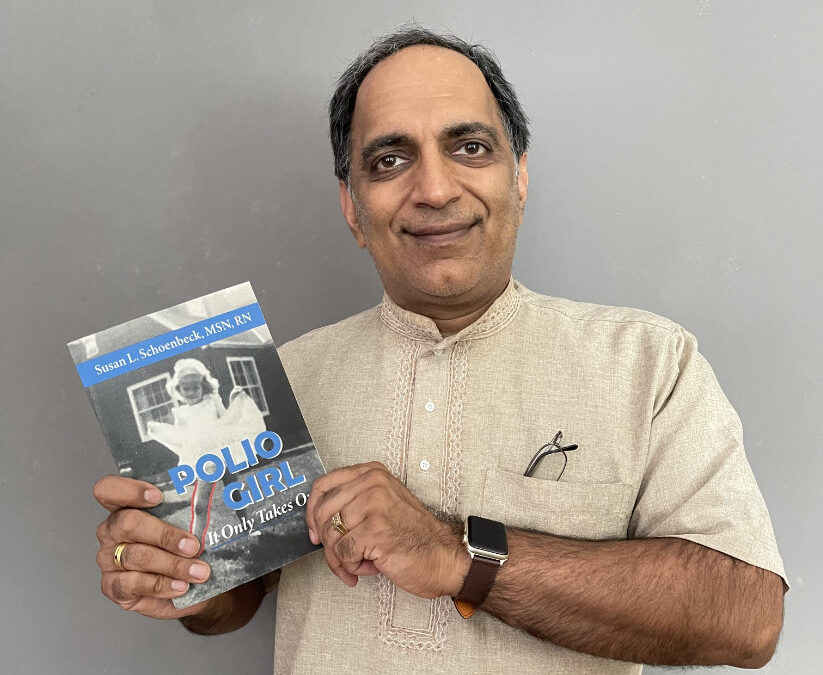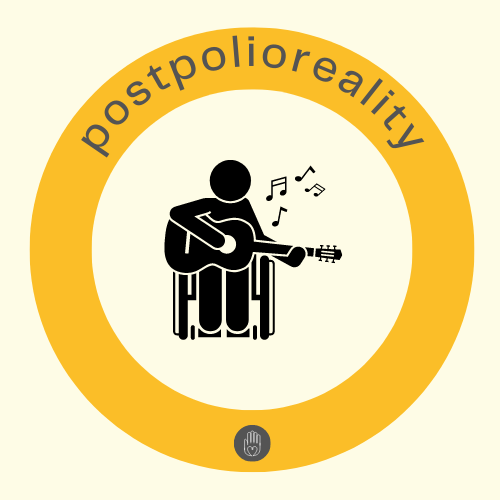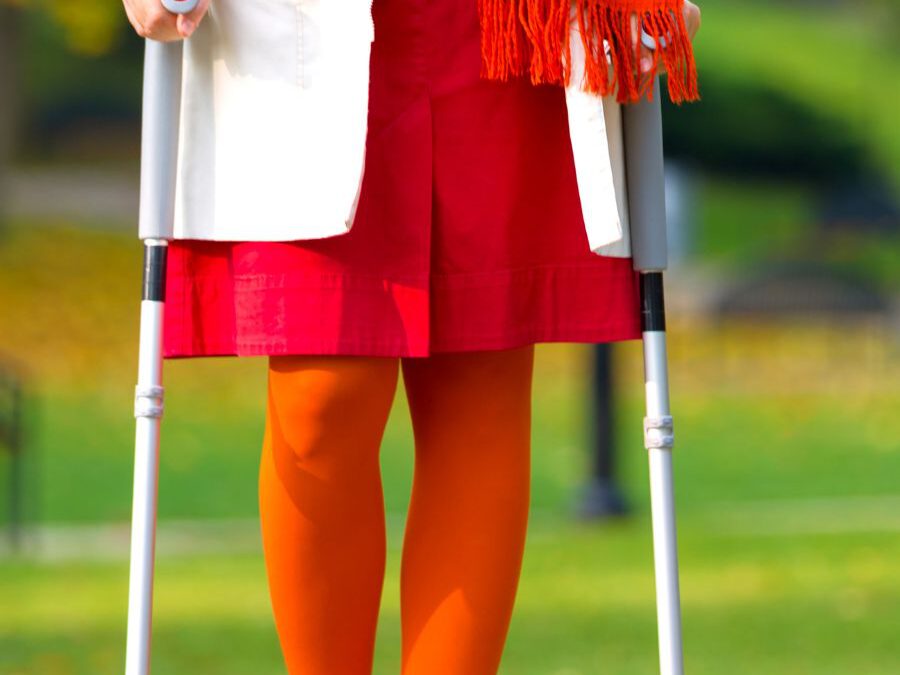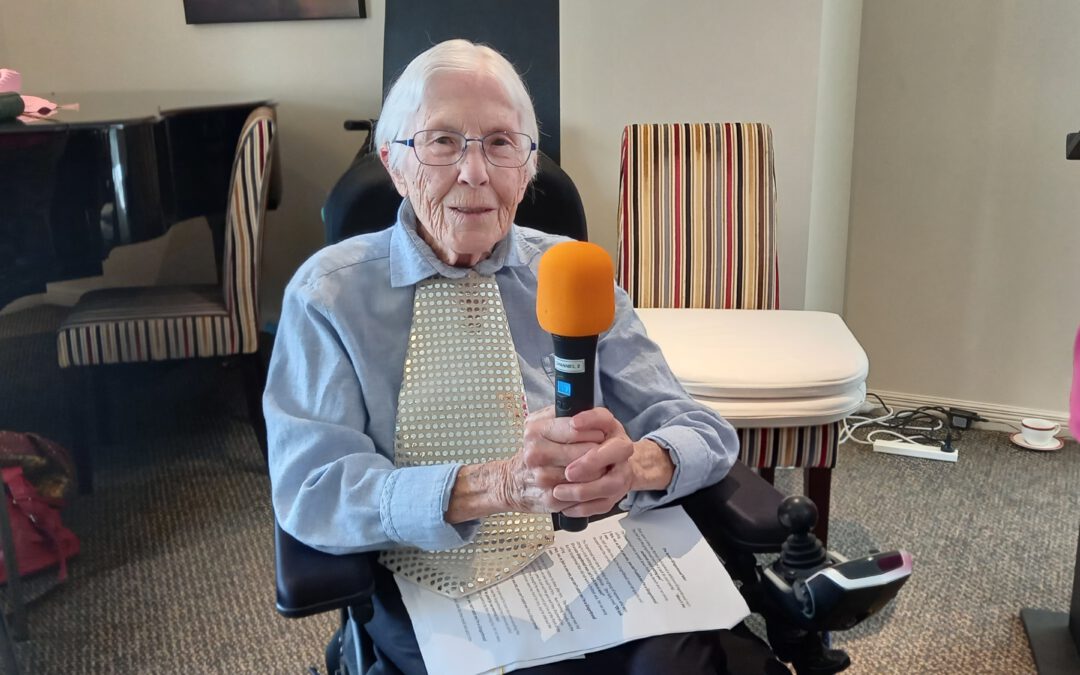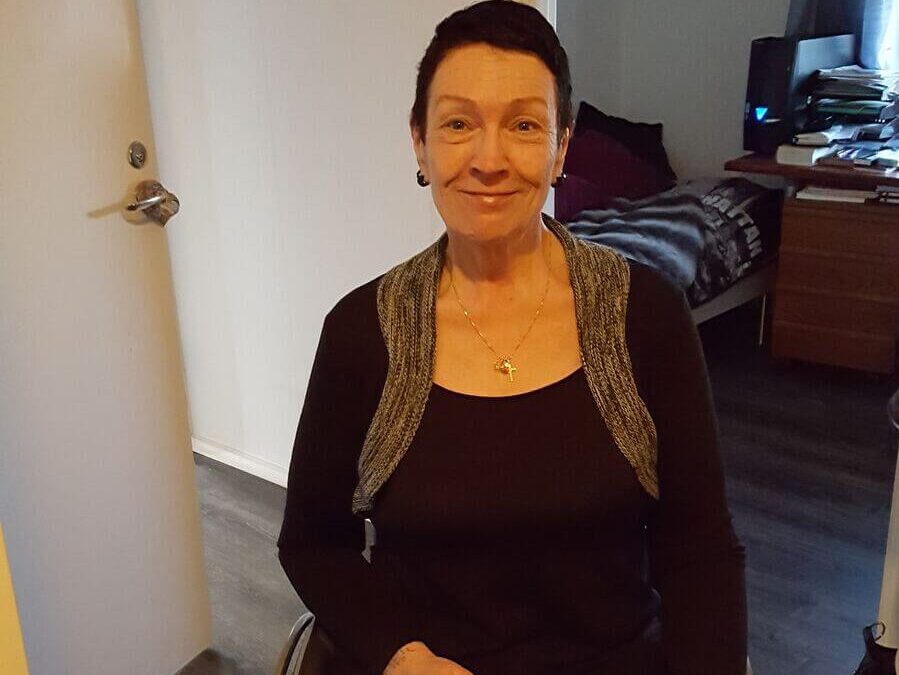
by admin | Jul 31, 2022 | New, Stories
Maybe the sun was shining, maybe the sky was covered with dark clouds.
All I really know is that my little body was burning with a fever that did not want to let go of its grip, and my head was breaking apart.
My legs do not want to carry me. I am falling outside the toilet door. I do not shout because it hurts, I shout because fear drills its arrows into me. My mother and father come running. Daddy lifts me up in his warm arms. I feel like a very small girl, miserable and ashamed. I, soon to be six years old, have not been able to stay dry. Daddy hums and rocks me slowly while he massages my legs which are completely red with heat.
Daddy says, “You will see kiddo, your legs have probably just taken a nap. Soon they will be normal again. “
Dad tries to get me up on my legs, but it’s impossible. Mom comes in. She puts me in bed between cool sheets. She gently strokes my hair and puts Pelle, my cuddly fuzzy teddy bear, on my arm. Everything feels so safe now.
I hear them gently move around out in the kitchen. I understand from the sounds that mother is setting the table with coffee cups. These are the nice, yellowish ones with green stripes on them. My favourit cups.
What are they talking about? Mother’s voice sounds different. “We probably have to call for a doctor now. A cold should not last that long and why did she fall suddenly? “, she pondered.
I never had time to hear my father’s answer, because the Sandman splashed his sleep glitter all over me, and let my feverish, aching body rest in a much-needed sleep.
I wake up to someone leaning over me, an older man, with gray hair, big glasses, and a bushy mustache. It feels like ice in my stomach. I wonder, “Who is he? Where are my mom and dad? “
Daddy asks, “Hi little lady, are you awake now? This is a doctor who is going to look at you. Maybe he can help us get rid of the stupid fever. “ My father’s voice calms me down. It does not feel dangerous to let the doctor take my temperature.
The doctor notices that the fever is high, grabs my legs and squeezes them, and twist them. He does the same with my arms. I shout out, “please Mom, make him stop, it hurts so much.”. My mother stands behind the doctor, but she does not come to my aid.
“What’s going on? “, I think. “Why is no one talking to me?”
The doctor mumbles something I do not understand. He disappears. My mother sits by my side, gently caresses my cheek, and smiles as beautifully as only she can. “You have to wait a little while sweetheart”, she says. “Mom and Dad need to talk to the Doctor a little, but I’ll be right back.” I beg and plead for her not to leave me alone, but she leaves anyway.
I hear their voices in silent whispers. I wonder, “Have I been stupid? Should I be punished for peeing? But please, it was not on purpose.” I close my eyes. I do not want to see. I do not want to hear. I must have fallen asleep for a while, because I am awaken by two men in white coats wearing strange masks over their mouths.
I scream.
Behind them I see my mother standing with tears running down her cheeks. My father is standing next to her with a protective arm around her thin shoulders.
They lift me up. I exclaim, “Please, help me, they will take me!” No one seems to hear me. I am carried away, then laid on a strange examination bed. It is so hard it hurts my back. Then mother reaches me, she takes my hand, she is with me. A calm settle in my heart.
“My little one, everything will be fine. We must go to the hospital so they can examine you properly. We will make sure you get really healthy.”, my mother explains.
I try to answer her, but the words do not come. I am tired and it hurts so hard and feels like I am burning, this cannot be my own body. Maybe it is not real? I must be dreaming. Inside me i shout out, Mom came and woke me up!
The men with the white coats carry me down to a car. It is large and grey. On its side, someone has painted a huge red cross. Mom is allowed to sit next to me and in her arms, she holds Pelle. She smiles at me. But the smile is not as it used to be, because tears are glistening in her eyes.
When we stop, they take me out and roll me into a room where the walls are sparkling white. Mom comes up by my side. I see her take my hand, but I do not feel it. “What’s going on? “
I must have dozed back to sleep; because once again, I was awakened by hearing voices all around me.
Strange figures stand around my bed. They are huge. They’re wearing white clothing and they are wearing masks in front of their noses and mouths. I feel them squeezing and pulling on my arms and legs. “Now you have to be completely still”, says a stranger’s voice.
I see a table being rolled in, and on it were a lot of strange things. In the middle of the shiny table is a large syringe. I know what it is, because my mother once took me to a nurse who gave me a shot with a syringe like this. It had hurt so much. I think, “Are they going to put that huge syringe in me? No, they cannot! “
Somewhere inside me, the fear has overcome the fatigue of the fever. I am roaring! A powerful scream came out of me that I never thought I was capable of. I see my mother’s tear-soaked face. Someone tells me that I must be quiet, that mother and father are not allowed to come in, that they must take a sample from my back. No, I do not want to!
I feel hard hands take a firm grip of my body. They turn me over. All I hear are the screams coming out of me. Shouts filled with fear, anxiety, and despair. It feels so weird when their hard hands grab me. It feels like someone is cutting stripes of my skin off with a knife. The white demons talk to each other, but I cannot bear to understand what is being said.
Nobody talks to me.
Then silence surrounds me. The demons have disappeared. I see mother and father come to me. My Mom slowly strokes my cheek and caresses my hair. Her hand feels cool and smooth like cotton. Dad takes my hand. Why do I not feel that he holds me?
Mom hums soothingly the songs I love. Her voice sounds like silver bells. Anxiety settles in my stomach. My body aches, but my head can no longer feel. Sleep wraps me in its security.
I can feel tears running down my cheek. It feels like the tears are eating into my skin. I want to wipe them away, but no matter how much I try to speak to my arms, they do not obey. They lie there on the blanket like large heavy logs, completely without their own will.
This must be how it feels to be dead.
This is how it is to end up in exclusion, in loneliness. This is how it is to be deprived of everything you thought would be forever. The family, the mobility, the life.
The year is 1958. I am six years old and have contracted polio.
Reflections by the grown up Gunilla:
I was really scarred. This experience created fears, anxiety, problems in the future that for many long years, I could not connect to my isolation. But now I understand it has affected me tremendously.
In retrospect, can now see that my parents ended up in social exclusion for many years. They, like me, lost their voices. My social exclusion became enormous. I was too small to understand that it was necessary to isolate me. The health care system of that time did not have the insight that one should talk to children, explain whats going on, and provide some form of security. My isolation created a lot of loneliness, and a lot of anxiety that I carried with me all my life. It created a big problem with knowing myself, and finding my own identity . It was always others who had decided my identity for me.
At that time, the respect for doctors, and healthcare workers was so enormous. As a relative of a patient, you bent and bowed and never questioned a doctor’s or staff’s decision.
I remember so well when the daily rounds were performed at the ward. There was always a tense atmosphere in the ward, nurses and assistants hurried back and forth to fix the bedding. They took away things that did not have to stand out. It would look neat so as not to annoy the doctors in any way.
When the rounds started, the doctor always came in first; wearing a clean white coat, a stethoscope hanging around his neck, and pencils in his breast pocket. Those days only men served as Doctors. They often came with their hands in their pockets followed by a bunch of candidates who idolized this powerful man, “the doctor”. Then in came the nurses. The first nurse to arrive was the wards ‘responsible nurse’. She carried a tabbed folder which she kept incredible control of at all times. It was our medical records, our test results, etc. As the team approached each patient, she would mumbled details from the chart about what had happened, what was going to happen, etc. They talked about us, not with us.
At most a doctor could say something like “here I see it better”, “how are you?”, but he never expected a response from the patients. The nurse took care of the answers by reading in the medical records about how the fever was, how the pain was, how the mood was. Careful instructions were then given by the doctor and then they swished out of the room. You were not a person, you were just a sick child or a sick adult who had no voice.
For my parents, this period was an extremely difficult period. For some reason, my mother was especially ashamed that one of her children had polio. As an adult, I have met other people with polio who have the same experience. Something that currently feels very strange. But the spirit of that time was so incredibly different.
I remember that when I got home, in the evenings I could hear my parents talking low in the kitchen. They sometimes discussed how to deal with my physical problems. I do not really know what they decided, but something I noticed throughout my upbringing, and even in adulthood, was that people talked about my disease as “she got a flurry of polio”. Then everything was good. Somehow that phrase would smooth over everything that happened and everything that came to happen. A denial of reality.
Maybe it was their way of dealing with the difficulty of polio. Because, of course, it was hard. There were many doctor visits, surgeries, orthotics had to be changed, physiotherapy, baths, and shoe adjustments. It took a lot of time. I took a lot of time. And at the same time, ordinary life had to go on.
My older sister also ended up in the shadows. There was a 6 year age gap between us, so we were at completely different stages in life when I got polio.
What I remember clearly is that great demands were made on her to also be enormously good. She studied to be a nurse. She was good at home and would always be my role model, according to our parents. She was often told that she was my role model, and I was often told that I would take after my sister. A responsibility that was certainly heavy to carry many times and these word created a lot of anger in me. I was never allowed to be just me, I was never good enough. I had to live up to something I could not.
I certainly reacted and acted more negatively than I really should have. But in me, my negativity was just a form of tremendous protest. I was already really scared and something in me just screamed ”NO” when more demands were made on me.
